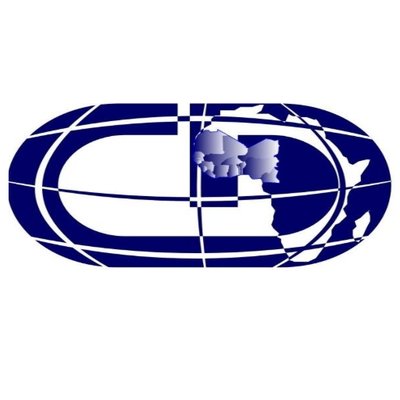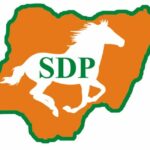The Centre for Democracy and Development (CDD), on March 17 launched the Election Analysis Centre (EAC) and presented its preliminary preview report of the one-week delayed 28 governorship and 36 houses of assembly elections held on Saturday across the country.
A report by the CDD director, Idayat Hassan on Saturday focused on issues of identity, insecurity, institutional preparedness, intra and inter-party disputes, the importance of personalities over parties and voter participation.
She stated that these would continue to be key themes in the CDD-EAC analysis of this election process and shape its in-depth post-election report as the organisation will continue to flag key election contests across the country.
She said the initial statement on the elections focused on the voting process, which is based on reports from the more than 1,200 observers deployed by the CDD across all 36 states.
- Election: Petty traders, food vendors lament low patronage
- Madrid gears up to cut Barcelona’s lead ahead of Clasico clash
The report stated that voting largely commenced on time across all the six geopolitical zones, which is an improvement on the presidential process.
According to the report, sporadic incidents linked to insufficient availability and questionable integrity of voting materials were reported, but voting generally proceeded with minimal incidents, with BVAS functionality high across the country.
It stated that there had been an increase in vote trading for goods and cash across political parties and at the geopolitical zones when compared to the February 25 presidential and National Assembly polls.
The CDD report noted that the heightened political environment, party agents and politically sponsored thugs, coupled with reduced presence of security agents, contributed to increased violent incidents in Kano, Lagos, Enugu, Rivers, Yobe and Kogi states.
It also noted that the South-South, South East and South West parts of the country in particular recorded the most violent incidents so far.
On the performance of the Independent National Electoral Commission (INEC), the CDD report stated that as compared with the February 25 exercise, polls largely opened in a prompter fashion across the country.
It stated that in the South West zone, for example, INEC officials arrived on time and commenced voting and accreditation as scheduled in over 80 per cent of observed polling units.
The CDD report also stated that the BVAS seemed to largely be functioning adequately across the country.
The report stated, “We note that in a handful of polling units in Taraba, Lagos and Plateau states, voting has already concluded due to the number of registered voters being very small – less than 10—and results have already been uploaded to the IReV.
“However, we note with concern that voting has been concluded and results uploaded in a handful of polling units where a significant fraction of registered voters have not voted. For instance, results were uploaded from Agbado Hall Edjekota Ogor, Ughelli North, Delta State before 2:30pm, despite only 130 of the 192 voters on the register having had an opportunity to cast their vote.”
On popular participation of electorates, the report said that voter turnout is varied across the region, but that a number of observers are reporting lower levels of public participation in these polls so far.
It further stated, “While there seems to be a general low turnout in relation to the presidential election, different dynamics are affecting the turnout across the different geopolitical zones. States where the incumbent is being significantly challenged by his opponent are experiencing a relatively higher turnout.
“In the South-South, there is a general sense of discouragement that due to the unfavourable outcome of the presidential election, ‘there is no point’ of coming out to vote.
On vote trading, the CDD report stated that while there were reduced accounts of voter trading during the 25 February presidential election when compared to the 2022 off-cycle polls, there have been many more instances nationwide reported by CDD observers during the elections.
According to the report, this is likely a reflection of the heightened political environment around the governorship poll, the importance of local personalities in state level politics and the ongoing shortages of fuel and naira.
“Observers in the South West reported significant instances of vote buying by different parties in different states. The Social Democratic Party (SDP) agents reportedly took down names of voters with the aim of repayment later in Ekiti State, while there were similar accusations of the All Progressives Congress (APC) and Peoples Democratic Party (PDP) officials actively soliciting votes in Oyo and Ogun states respectively.
“In the South East, there were reports of the All Progressives Grand Alliance (APGA) and Labour Party (LP) agents using materials, phones and other souvenirs to entice voters in Anambra State. In the South South, multiple party agents reported a desire for voters to show proof of their votes before being paid, with party agents reportedly compiling a list of their voters in Esan Central Local Government Area of Edo State.
“In the North West, observers in all the seven states reported increased reports of vote trading, primarily by the APC and PDP party agents, with money used, alongside other materials, such as food items, wrappers and a ‘credit voucher’ to be redeemed after the results.
“In the North East, APC and PDP agents, at multiple polling units in Taraba, reportedly infiltrated the queues pretended to be voters and used the chance to offer cash for votes. There were also reports of incidents involving party agents in Bauchi and Yobe, who were recorded campaigning and soliciting for votes at polling units.
“There were multiple incidents reported in the North Central. Observers noted suspected PDP agents buying votes in Katsina-Ala, Benue State for at least N1,000, while there were reports of collusion between the APC and PDP agents in Mikang Local Government Area, Plateau State, where there has been trading of votes and informal arrangements between parties to support alternative candidates for governorship and state assembly elections.”
The multiple reports of voter suppression and violence in Lagos leave room for concern, alongside similar trends reported in Bayelsa, Edo and Rivers in the South-South.

 Join Daily Trust WhatsApp Community For Quick Access To News and Happenings Around You.
Join Daily Trust WhatsApp Community For Quick Access To News and Happenings Around You.

